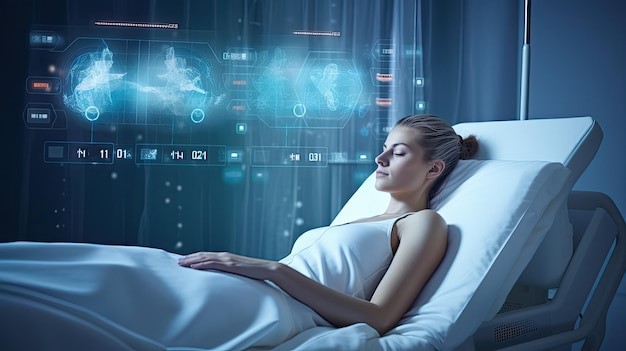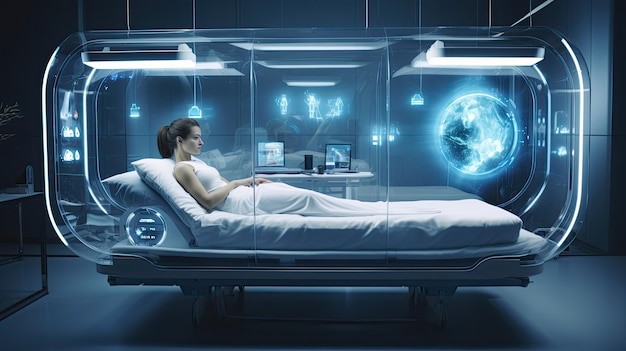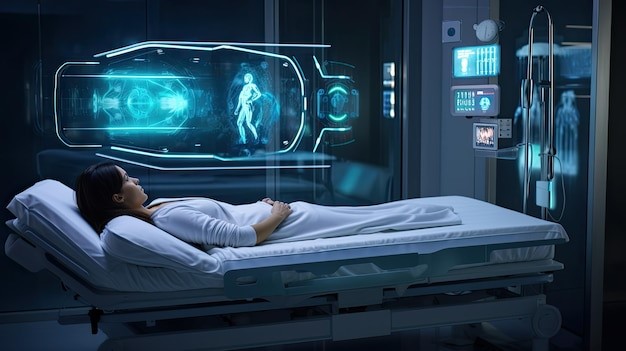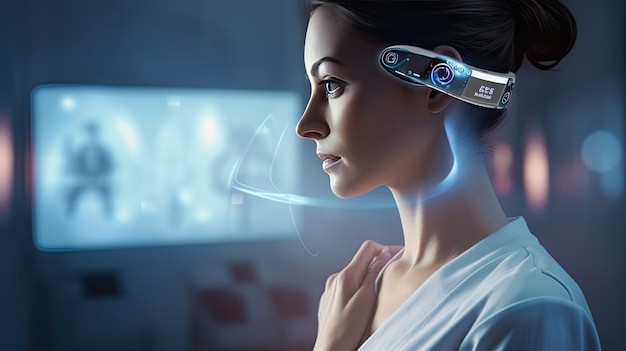AI in Sleep Disorder Diagnosis
Janani R May 30, 2024 | 10:30 AM Technology
AI is transforming the diagnosis of sleep disorders by utilizing advanced algorithms and data analysis techniques to improve accuracy, efficiency, and accessibility. Here's a concise overview of its key contributions:
Polysomnography (PSG) Analysis
- Enhanced Data Processing: AI algorithms can quickly and accurately analyze PSG data, identifying sleep stages, patterns, and anomalies that may indicate disorders such as sleep apnea, insomnia, and narcolepsy.
- Efficiency: Automation of PSG scoring reduces the time and effort required by human technicians, minimizing errors and increasing throughput in sleep clinics.
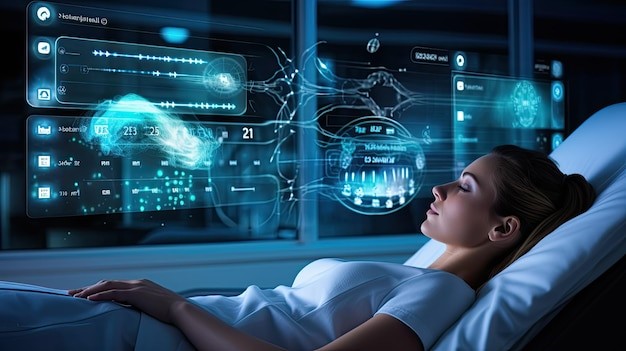
Figure 1. AI in Sleep Disorder Diagnosis.
Wearable Technology
- Accurate Tracking: Figure 1 shows AI in Sleep Disorder Diagnosis. AI enhances the capabilities of wearable devices to monitor sleep patterns through sensors that track movement, heart rate, and other physiological signals.
- Accessibility: These wearables make sleep monitoring more accessible to the general public, allowing for widespread screening and early detection of sleep disorders.
Automated Scoring and Diagnosis
- Consistency: AI provides consistent and objective analysis of sleep data, reducing variability in diagnoses that can occur with human interpretation.
- Speed: Automated systems can deliver diagnostic results much faster than traditional manual methods, enabling quicker intervention and treatment.
Integration with Health Records
- Comprehensive Analysis: AI systems can integrate sleep data with electronic health records (EHRs) to provide a holistic view of a patient's health, considering multiple factors that may affect sleep.
- Personalized Insights: By analyzing data across different health parameters, AI can offer personalized diagnostic insights and recommendations for treatment.
Continuous Improvement
- Machine Learning: AI systems continuously learn and improve from new data, enhancing their diagnostic accuracy over time.
- Adaptability: These systems can adapt to new sleep patterns and emerging sleep disorders, ensuring they remain effective as diagnostic tools.
AI's application in sleep disorder diagnosis significantly improves the accuracy, efficiency, and accessibility of identifying sleep-related issues. [1] By leveraging advanced data analysis, wearable technology, and integration with broader health data, AI enhances the ability to diagnose and treat sleep disorders, leading to better health outcomes for patients.
References:
- https://medium.com/@poonacha/revolutionizing-sleep-health-the-role-of-artificial-intelligence-in-modern-sleep-medicine-4390e78951d2
Cite this article:
Janani R (2024), AI and Sleep: Applications in Sleep Science and Medicine, AnaTechmaz, pp.1


